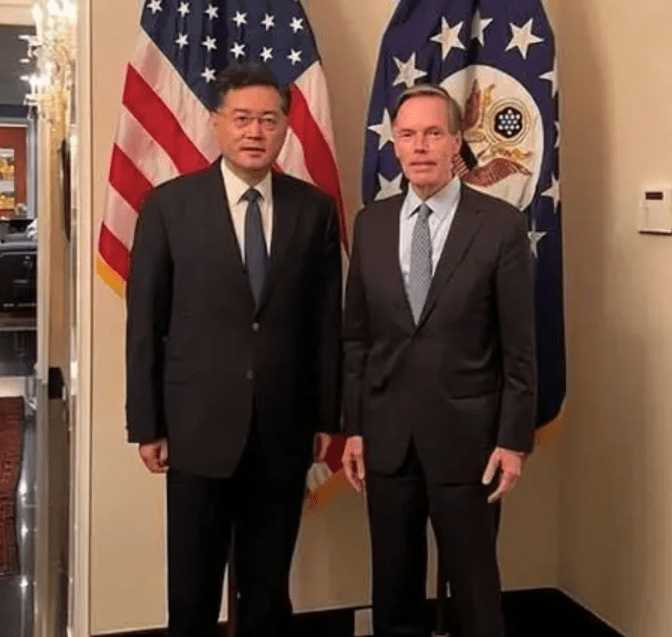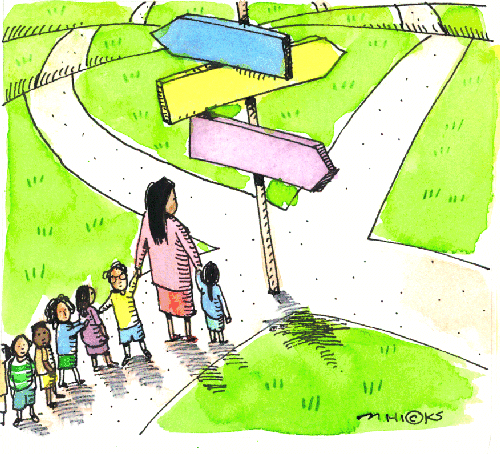The Impact Of Tariffs On The Federal Reserve: Powell's Concerns

Table of Contents
Tariffs as a Source of Inflationary Pressure
Tariffs, essentially taxes on imported goods, directly increase the prices consumers and businesses pay. This increased cost of imported goods can act as a significant driver of inflation, impacting the purchasing power of consumers and the profitability of businesses. The potential for this to escalate into a broader inflationary spiral is a serious concern for the Federal Reserve.
- Increased costs for businesses using imported materials: Many businesses rely on imported raw materials or components. Tariffs increase their input costs, forcing them to either absorb the higher prices, reducing profit margins, or pass them onto consumers through higher prices.
- Reduced consumer purchasing power: Higher prices for goods and services, stemming from tariffs, directly reduce consumer purchasing power, potentially slowing down economic growth.
- Potential for wage-price spirals: As prices rise due to tariffs, workers may demand higher wages to maintain their living standards. This could lead to a wage-price spiral, further fueling inflation.
- Examples of specific tariffs and their inflationary effects: The imposition of tariffs on steel and aluminum, for example, led to increased prices for downstream industries like automobiles and construction, contributing to inflationary pressures.
Chairman Powell has repeatedly voiced concerns about the inflationary effects of tariffs, highlighting their potential to destabilize the economy and complicate the Federal Reserve's mandate of maintaining price stability.
Tariffs and Uncertainty in the Economic Outlook
The imposition of tariffs introduces considerable uncertainty into the economic outlook, making it exceedingly difficult for businesses, investors, and the Federal Reserve itself to make accurate forecasts. This uncertainty undermines economic confidence and can lead to a self-fulfilling prophecy of slower growth.
- Reduced business investment due to uncertainty: Businesses are hesitant to invest in expansion or new projects when faced with unpredictable trade policies. This reluctance to invest can stifle economic growth.
- Impact on consumer confidence and spending: Uncertainty surrounding tariffs can dampen consumer confidence, leading to reduced spending and a slowdown in consumer-driven economic activity.
- Challenges for the Fed in setting appropriate monetary policy: The increased volatility and uncertainty make it incredibly challenging for the Federal Reserve to set appropriate monetary policy, as the effects of any action become harder to predict.
- Powell's comments on the uncertainty caused by tariffs: Powell has publicly acknowledged the significant uncertainty created by tariffs and their negative impact on investment and economic planning.
The Fed's Response to Tariff-Induced Economic Changes
The Federal Reserve must carefully consider the impact of tariffs when setting monetary policy. The response will depend on the specific economic consequences—whether inflation is the primary concern or whether economic growth is slowing due to reduced investment and consumer spending.
- Potential for interest rate hikes to combat inflation: If tariffs lead to significant inflation, the Fed might raise interest rates to cool down the economy and curb price increases.
- Potential for easing to stimulate the economy if growth slows: Conversely, if tariffs cause a significant economic slowdown, the Fed may opt for monetary easing—such as lowering interest rates or quantitative easing—to stimulate economic activity.
- The challenges of balancing inflation control with economic growth: The Fed faces the challenging task of balancing the need to control inflation with the need to support economic growth, a task made even more complex by the unpredictable nature of tariff-induced economic shocks.
- Analysis of the Fed's past actions in similar situations: Historical precedent, such as the Fed's response to oil price shocks, offers some guidance, but each situation is unique, and the impact of tariffs presents its own set of complexities.
The Fed’s actions in response to tariff-induced changes have been carefully scrutinized, with analysts debating the effectiveness of its responses and the long-term economic ramifications.
Geopolitical Implications and the Federal Reserve's Role
Tariffs are not merely an economic phenomenon; they have significant geopolitical implications that impact global markets and influence the Federal Reserve's decision-making process.
- Impact on international trade relationships: Tariffs can strain international trade relationships, leading to retaliatory measures and escalating trade wars.
- Potential for retaliatory tariffs and trade wars: The imposition of tariffs by one country often provokes retaliatory measures from other countries, leading to a potentially damaging trade war.
- The Fed's role in maintaining financial stability during trade disputes: The Federal Reserve plays a crucial role in maintaining financial stability during trade disputes, attempting to mitigate the economic fallout.
- Powell's perspective on the international ramifications of tariffs: Chairman Powell has highlighted the global interconnectedness of economies and the potential for trade disputes to destabilize the international financial system.
Conclusion: Understanding the Impact of Tariffs on the Federal Reserve: A Call to Action
The Impact of Tariffs on the Federal Reserve is multifaceted and significant. Tariffs introduce inflationary pressures, create economic uncertainty, and necessitate careful consideration by the Federal Reserve in setting monetary policy. The interconnectedness of trade policy and monetary policy is undeniable, and the geopolitical implications further complicate the situation. Understanding these complex interactions is crucial for navigating the economic landscape.
To stay informed about the ongoing debate, further research into the Impact of Tariffs on the Federal Reserve, "Powell's monetary policy," "trade war effects," and "inflationary pressures" is strongly recommended. Staying informed is vital to understanding the implications of these policies on your personal finances and the global economy.

Featured Posts
-
 Dazi Stati Uniti Come Cambieranno I Prezzi Della Moda
May 25, 2025
Dazi Stati Uniti Come Cambieranno I Prezzi Della Moda
May 25, 2025 -
 Farrows Plea Prosecute Trump For Deporting Venezuelan Gang Members
May 25, 2025
Farrows Plea Prosecute Trump For Deporting Venezuelan Gang Members
May 25, 2025 -
 New Ferrari Flagship Showroom Opens In Bangkok
May 25, 2025
New Ferrari Flagship Showroom Opens In Bangkok
May 25, 2025 -
 Escape To The Country Top Tips For A Smooth Transition
May 25, 2025
Escape To The Country Top Tips For A Smooth Transition
May 25, 2025 -
 Escape To The Country Budgeting And Planning Your Ideal Trip
May 25, 2025
Escape To The Country Budgeting And Planning Your Ideal Trip
May 25, 2025
Latest Posts
-
 Glasgow Transformed How A Martin Compston Thriller Reimagines The City
May 25, 2025
Glasgow Transformed How A Martin Compston Thriller Reimagines The City
May 25, 2025 -
 Top Tv Picks Today The Skinny Jab Revolution Black 47 And Roosters
May 25, 2025
Top Tv Picks Today The Skinny Jab Revolution Black 47 And Roosters
May 25, 2025 -
 Martin Compston And The Glasgow Thriller City Transformation On Screen
May 25, 2025
Martin Compston And The Glasgow Thriller City Transformation On Screen
May 25, 2025 -
 Is Glasgow The New Los Angeles Martin Compstons Crime Thriller Sets The Scene
May 25, 2025
Is Glasgow The New Los Angeles Martin Compstons Crime Thriller Sets The Scene
May 25, 2025 -
 Todays Top Tv And Streaming Choices The Skinny Jab Revolution Black 47 And Roosters
May 25, 2025
Todays Top Tv And Streaming Choices The Skinny Jab Revolution Black 47 And Roosters
May 25, 2025
